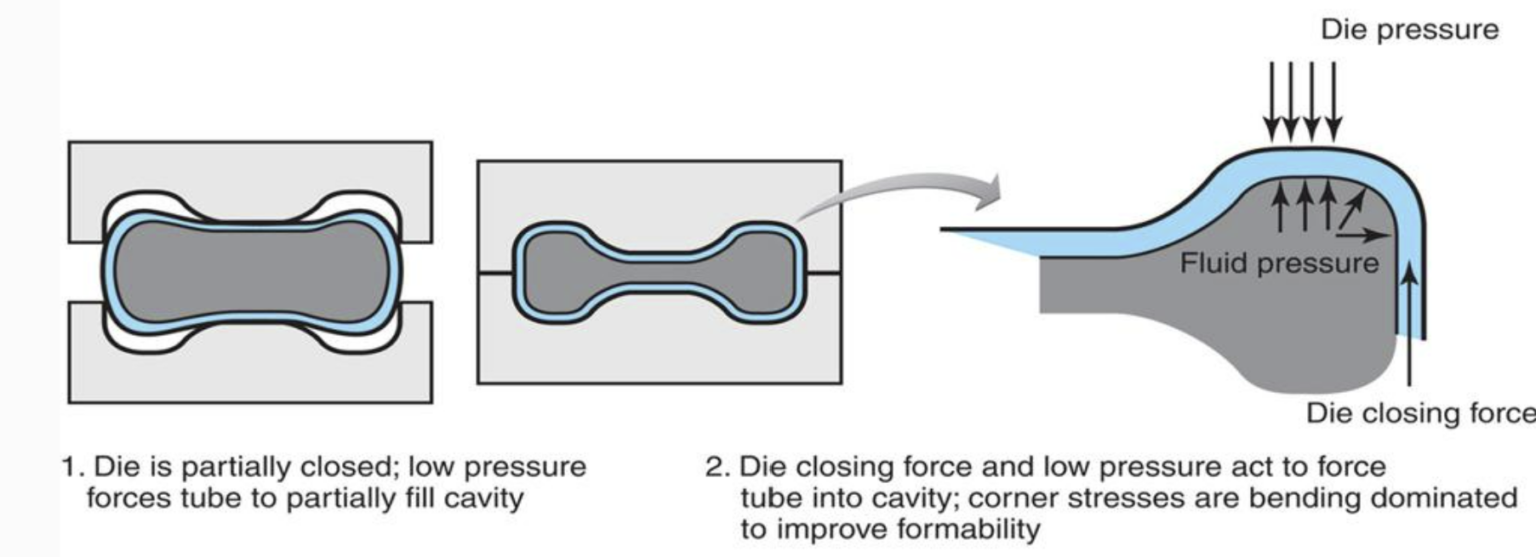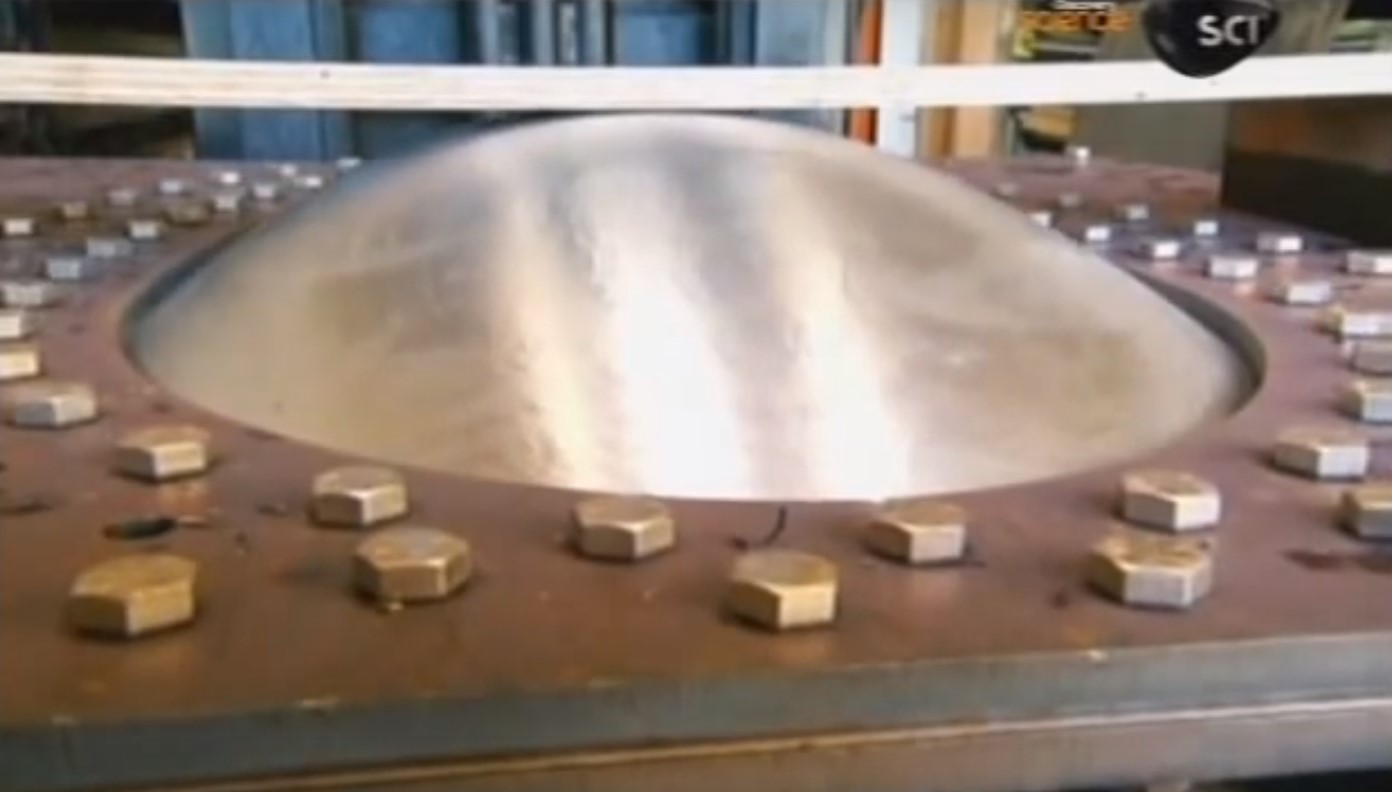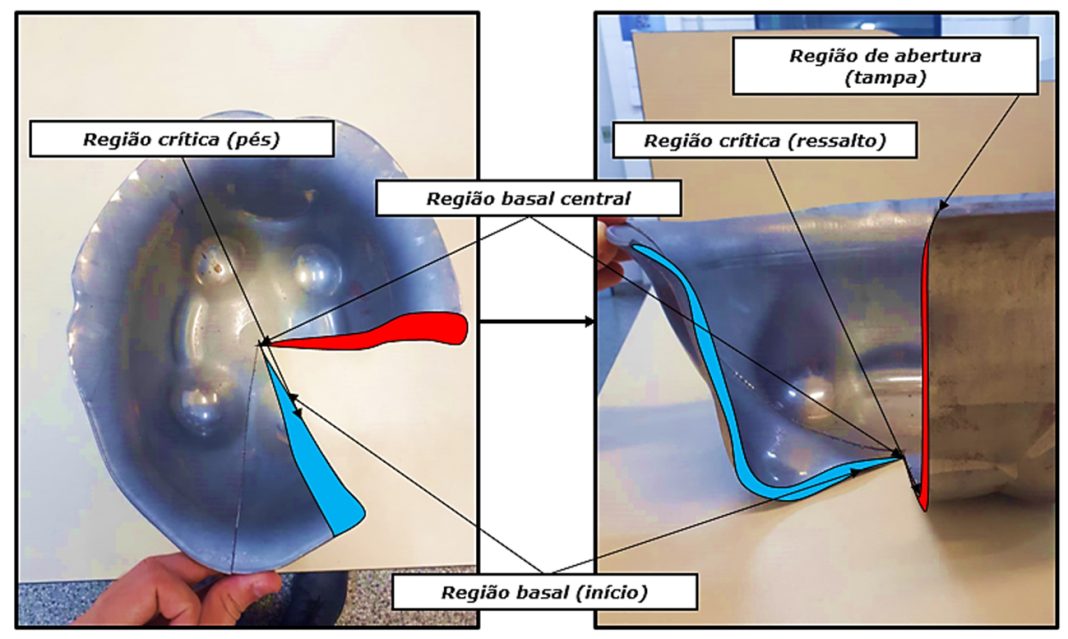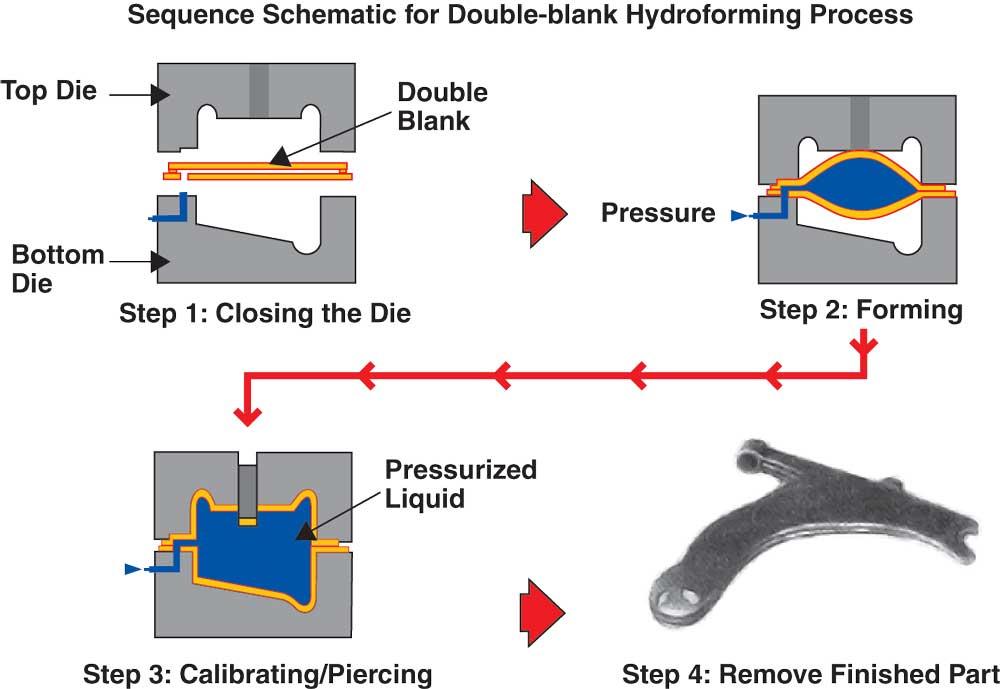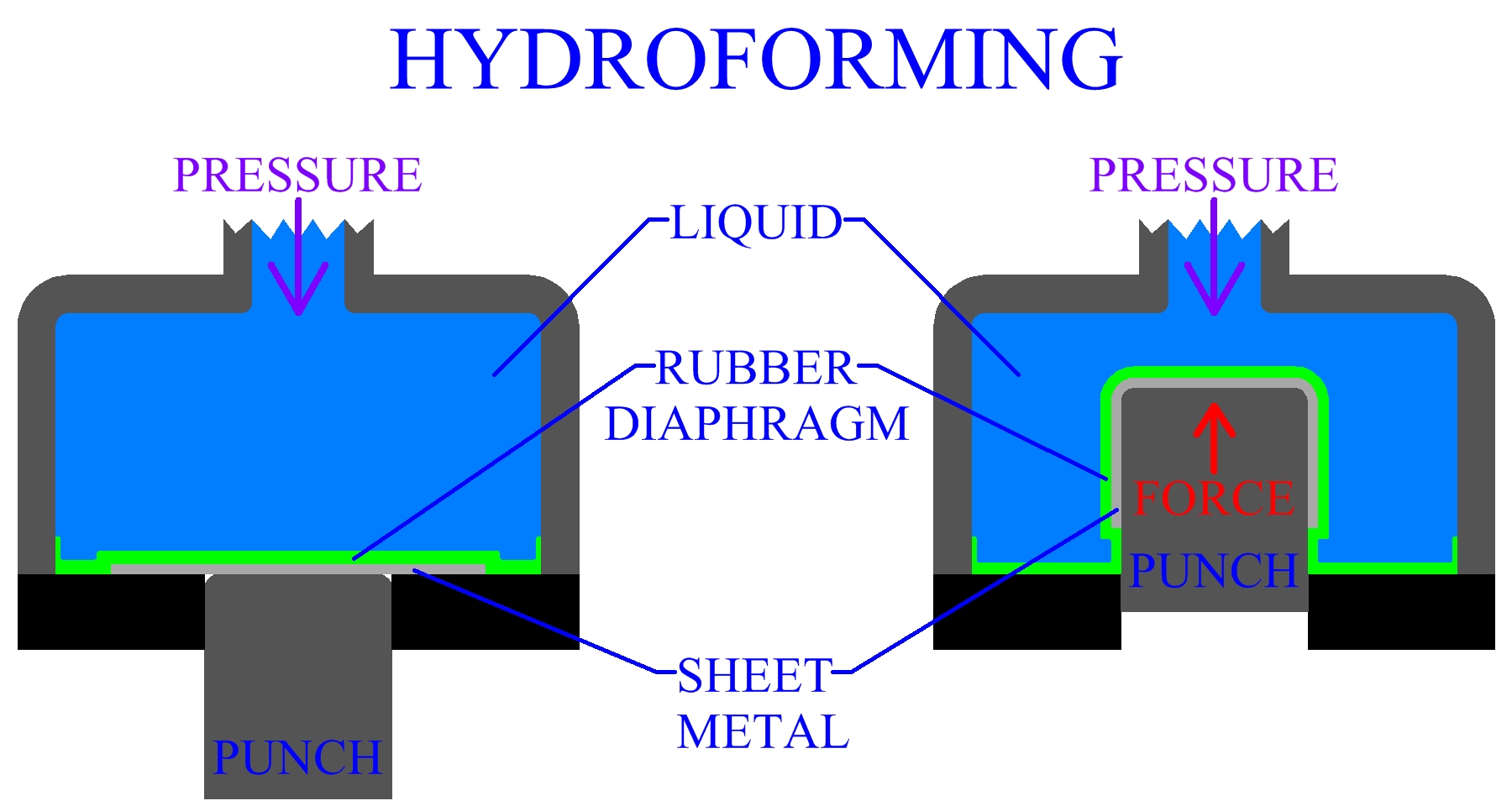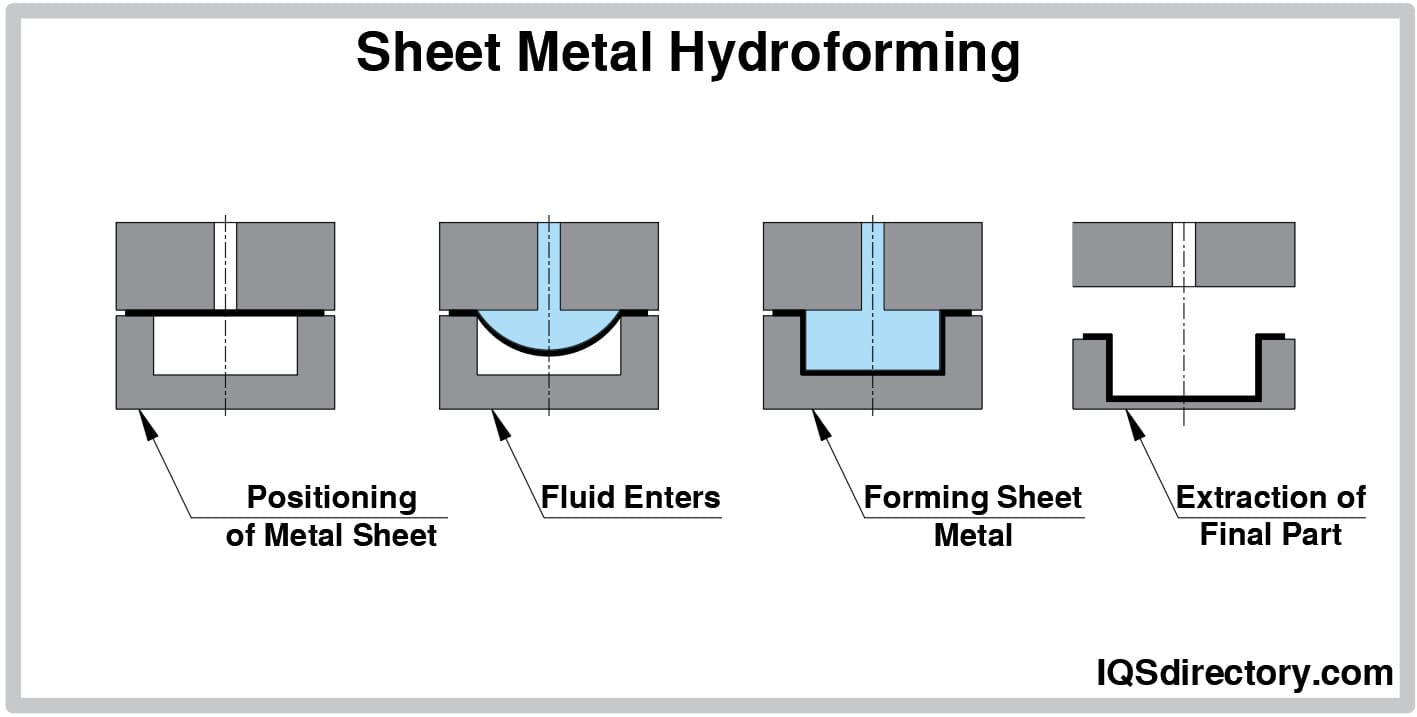Metal Sheet Hydroforming - In conclusion, sheet metal hydroforming is a versatile and efficient manufacturing process that offers numerous. Hydroformed parts allow for parts consolidation, the reduced number of subcomponents reduces assembly costs and increases strength and. In general, any sheet metal material capable of being cold formed, such as carbon steel, aluminum, stainless steel, copper, and brass, is. This whitepaper explores the answers to these commonly asked questions about the sheet hydroforming process and offers guidance into.
Hydroformed parts allow for parts consolidation, the reduced number of subcomponents reduces assembly costs and increases strength and. In conclusion, sheet metal hydroforming is a versatile and efficient manufacturing process that offers numerous. This whitepaper explores the answers to these commonly asked questions about the sheet hydroforming process and offers guidance into. In general, any sheet metal material capable of being cold formed, such as carbon steel, aluminum, stainless steel, copper, and brass, is.
This whitepaper explores the answers to these commonly asked questions about the sheet hydroforming process and offers guidance into. In conclusion, sheet metal hydroforming is a versatile and efficient manufacturing process that offers numerous. Hydroformed parts allow for parts consolidation, the reduced number of subcomponents reduces assembly costs and increases strength and. In general, any sheet metal material capable of being cold formed, such as carbon steel, aluminum, stainless steel, copper, and brass, is.
Sheet Metal Hydroforming The Ultimate Guide for Engineers and
In conclusion, sheet metal hydroforming is a versatile and efficient manufacturing process that offers numerous. In general, any sheet metal material capable of being cold formed, such as carbon steel, aluminum, stainless steel, copper, and brass, is. This whitepaper explores the answers to these commonly asked questions about the sheet hydroforming process and offers guidance into. Hydroformed parts allow for.
Sheet Metal Hydroforming The Ultimate Guide for Engineers and
In general, any sheet metal material capable of being cold formed, such as carbon steel, aluminum, stainless steel, copper, and brass, is. This whitepaper explores the answers to these commonly asked questions about the sheet hydroforming process and offers guidance into. Hydroformed parts allow for parts consolidation, the reduced number of subcomponents reduces assembly costs and increases strength and. In.
Hydroforming Sheet Metal Common Applications and Benefits
Hydroformed parts allow for parts consolidation, the reduced number of subcomponents reduces assembly costs and increases strength and. In general, any sheet metal material capable of being cold formed, such as carbon steel, aluminum, stainless steel, copper, and brass, is. In conclusion, sheet metal hydroforming is a versatile and efficient manufacturing process that offers numerous. This whitepaper explores the answers.
Hydroforming Sheet Metal Polyurethane Products
Hydroformed parts allow for parts consolidation, the reduced number of subcomponents reduces assembly costs and increases strength and. In general, any sheet metal material capable of being cold formed, such as carbon steel, aluminum, stainless steel, copper, and brass, is. In conclusion, sheet metal hydroforming is a versatile and efficient manufacturing process that offers numerous. This whitepaper explores the answers.
In Pictures! How Hydroforming Can Replace Sheet Metal Stamping in the
In general, any sheet metal material capable of being cold formed, such as carbon steel, aluminum, stainless steel, copper, and brass, is. This whitepaper explores the answers to these commonly asked questions about the sheet hydroforming process and offers guidance into. Hydroformed parts allow for parts consolidation, the reduced number of subcomponents reduces assembly costs and increases strength and. In.
R&D Update Processes for hydroforming sheet metal, Part I
This whitepaper explores the answers to these commonly asked questions about the sheet hydroforming process and offers guidance into. In general, any sheet metal material capable of being cold formed, such as carbon steel, aluminum, stainless steel, copper, and brass, is. Hydroformed parts allow for parts consolidation, the reduced number of subcomponents reduces assembly costs and increases strength and. In.
R&D Update Processes for hydroforming sheet metal, Part I
In general, any sheet metal material capable of being cold formed, such as carbon steel, aluminum, stainless steel, copper, and brass, is. This whitepaper explores the answers to these commonly asked questions about the sheet hydroforming process and offers guidance into. Hydroformed parts allow for parts consolidation, the reduced number of subcomponents reduces assembly costs and increases strength and. In.
Hydroforming Sheet Metal Process Sheet Metal Forming Hydroforming
This whitepaper explores the answers to these commonly asked questions about the sheet hydroforming process and offers guidance into. In general, any sheet metal material capable of being cold formed, such as carbon steel, aluminum, stainless steel, copper, and brass, is. In conclusion, sheet metal hydroforming is a versatile and efficient manufacturing process that offers numerous. Hydroformed parts allow for.
Rubber Forming Of Sheet Metal
In conclusion, sheet metal hydroforming is a versatile and efficient manufacturing process that offers numerous. This whitepaper explores the answers to these commonly asked questions about the sheet hydroforming process and offers guidance into. Hydroformed parts allow for parts consolidation, the reduced number of subcomponents reduces assembly costs and increases strength and. In general, any sheet metal material capable of.
Hydroforming Companies Hydroforming Services
This whitepaper explores the answers to these commonly asked questions about the sheet hydroforming process and offers guidance into. Hydroformed parts allow for parts consolidation, the reduced number of subcomponents reduces assembly costs and increases strength and. In conclusion, sheet metal hydroforming is a versatile and efficient manufacturing process that offers numerous. In general, any sheet metal material capable of.
Hydroformed Parts Allow For Parts Consolidation, The Reduced Number Of Subcomponents Reduces Assembly Costs And Increases Strength And.
In conclusion, sheet metal hydroforming is a versatile and efficient manufacturing process that offers numerous. This whitepaper explores the answers to these commonly asked questions about the sheet hydroforming process and offers guidance into. In general, any sheet metal material capable of being cold formed, such as carbon steel, aluminum, stainless steel, copper, and brass, is.

